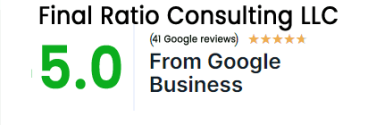Corporate Tax
Dubai's Corporate Tax
The tax landscape in the United Arab Emirates (UAE) underwent a significant shift on January 31, 2022, when the Ministry of Finance (MoF) announced the introduction of a new federal corporate tax (CT) system. This system, which will be effective from financial years starting on or after June 1, 2023, marks a pivotal moment in the region’s economic development. Apart from Bahrain, the UAE now boasts the lowest corporate income tax rate in the GCC region at a standard rate of 9%. This change introduces a new corporate tax regime aimed at aligning with global best practices while minimizing the compliance burden . However, the corporate tax treatment for mainland UAE companies differs from that for businesses operating under free zone licenses.
In this article, we will dive deeper into corporate tax in Dubai, explaining how the new system works, who is affected, and how businesses can navigate these changes efficiently.


What is Corporate Tax?
Corporate tax refers to the tax levied on the profits of businesses operating,. Under the new federal corporate tax system, businesses will be required to pay a percentage of their taxable profits to the government, based on their revenue and the nature of their operations. The tax rate is set at 9% for most businesses, making it the lowest in the GCC region. However, some businesses may benefit from tax exemptions or reduced rates, depending on the specific nature of their operations and location within Dubai or the UAE.
Dubai’s introduction of corporate tax is a move towards modernization, bringing the country in line with international standards for taxation. It also serves as a tool to diversify the UAE’s revenue sources, reducing its dependency on oil and natural gas exports.
Dubai Corporate Tax System for Mainland Companies
Mainland companies that conduct business activities onshore (within the UAE) will be subject to the new corporate tax rules. These businesses will need to comply with the filing and payment requirements set out by the Federal Tax Authority (FTA). The tax will apply to all corporate entities, including partnerships, limited liability companies (LLCs), and joint ventures.
It’s important to note that the corporate tax rate will apply to the business’s net profits, which are calculated after deducting expenses such as operating costs, wages, and other necessary business expenditures.
Dubai Corporate Tax System for Free Zone Companies
Numerous free zones offer a range of benefits for businesses. However, businesses operating in these free zones have a different tax structure compared to mainland companies. Many free zones offer tax exemptions for a specific period, typically up to 50 years, and are designed to attract foreign investment.
Under the new tax regime, free zone businesses may still benefit from exemptions, provided they meet certain conditions. These conditions may include maintaining a substantial level of business activities within the free zone and not conducting business directly with the UAE mainland. However, any free zone company that conducts business activities within the mainland will likely be subject to corporate tax at the standard rate of 9%.
It’s important to note that the corporate tax rate will apply to the business’s net profits, which are calculated after deducting expenses such as operating costs, wages, and other necessary business expenditures.
Our Service
Why to Choose Us For Corporate Tax
At Final Ratio, we specialize in offering professional and comprehensive corporate tax services. Our expertise can help business understand, navigate, and comply with the new tax system. We provide a full range of services designed to ensure that your business remains tax-efficient and compliant.
Registration for Corporate Tax
We assist in registering for corporate tax with the relevant authorities. Whether you’re a mainland company or a free zone entity, we ensure that your business meets all the requirements for tax registration. Our team will guide you through the process, ensuring that you obtain the necessary corporate tax registration number.
Annual Corporate Tax Filing
Our corporate tax consultants handle the preparation and submission of your annual corporate tax returns. We ensure accuracy and timeliness, helping you avoid penalties for late submissions or incorrect filings. Our goal is to keep your tax filings in compliance with the latest regulations, making the filing process as seamless as possible.
Advisory Services for Corporate Tax
Navigating the complexities of corporate tax laws can be challenging. Our expert advisory services are designed to help businesses understand the intricacies of tax laws and optimize their tax efficiency. We offer tailored solutions to minimize tax liabilities, allowing you to focus on growing your business while staying compliant with the law.
CT Health Check
Our CT Health Check service involves a comprehensive review of your business’s corporate tax obligations. This service identifies any potential tax issues or areas for improvement, ensuring that your tax practices are in line with regulatory requirements. By conducting a tax health check, we help you mitigate risks and improve your overall tax position.
Tax Planning & Compliance
Effective tax planning is essential for managing corporate tax liabilities. Our consultants develop customized tax strategies that align with your business objectives while ensuring full compliance with Dubai’s tax laws. We aim to reduce your overall tax burden through careful planning, helping you allocate resources efficiently and strategically.
De-registration Services for Corporate Tax
If your business is no longer subject to corporate tax or if you wish to cease operations, our de-registration services help you navigate the process smoothly. We ensure that all the necessary steps are completed in line with regulatory requirements, helping you close your business or change its status without complications.
The Introduction of Corporate Tax in the UAE
The introduction of corporate tax in the UAE is a strategic move aimed at diversifying the country’s economy. Traditionally, the UAE has relied heavily on oil revenues, but the new corporate tax regime reflects the country’s desire to expand its non-oil sectors, such as tourism, finance, and real estate.
Businesses engaged in commercial activities under a commercial license will now be subject to corporate tax in the UAE. Similarly, businesses operating in the UAE’s free zones, with certain exceptions, will also be required to register for corporate tax. Exemptions are available for businesses that do not conduct any business in the mainland or that meet specific criteria outlined by the Federal Tax Authority (FTA).
Who is Affected by Dubai Corporate Tax?
The corporate tax applies to all businesses in Dubai and the wider UAE, except for those that meet the criteria for exemptions. Free zone businesses that conduct business outside their designated zone or with mainland entities will also need to comply with the corporate tax regulations. Businesses must understand the specifics of the law and take appropriate actions to ensure compliance.
VAT implementations
Alongside the introduction of corporate tax, businesses in Dubai must also comply with VAT (Value Added Tax) regulations. While corporate tax applies to the profits of a business, VAT is levied on the consumption of goods and services within the UAE. The VAT rate is 5%, and it applies to most goods and services unless they are specifically exempted or zero-rated.
VAT Rates
In Dubai, VAT is divided into three categories:
- Standard VAT Rate (5%): Most goods and services are taxed at this rate, including electronics, clothing, and most consumer goods.
- Zero-Rated VAT: Certain items, such as some food items and medicines, are not subject to VAT.
- VAT Exemptions: Some transactions, such as residential property rentals and local transport, are exempt from VAT.
VAT Registration in Dubai
If your business exceeds the VAT registration threshold, you will need to register for VAT. This process involves preparing the necessary documentation, submitting an application online, and receiving a VAT certificate once your registration is approved. Our team can assist you in this process, ensuring that you comply with VAT regulations while minimizing the administrative burden.
What do you need to register VAT?
Registration for VAT involves several steps:
FAQ
Frequently asked questions.
Depending on the organization providing the services and their level of sophistication, accounting services can have varying costs. It typically varies between several hundred and several thousand dirhams per month.
VAT implementations aim to generate revenue, promote economic growth, and ensure fair taxation. Final Ratio guides businesses through the VAT registration process, ensuring compliance and timely submission of required documents.
Businesses engaged in commercial activities under a commercial license, Free Zone businesses, operations within the banking sector, foreign companies, and taxable persons are required to register for Corporate Tax.
Final Ratio assists businesses in gathering necessary documentation, completing the online registration form accurately, and submitting it to the tax authority. They also ensure ongoing compliance with VAT regulations by guiding filing returns and maintaining accurate records.
Corporate tax in Dubai refers to the tax levied on the profits of businesses operating within the UAE. With the introduction of the new federal corporate tax system in 2023, companies in Dubai must pay a 9% tax on their profits, making it one of the most competitive tax rates in the region. This tax is applicable to all mainland businesses and certain free zone companies based on their activities.
To register for corporate tax in Dubai, businesses must submit their application to the Federal Tax Authority (FTA). You’ll need to provide necessary documents such as business licenses and financial records. Our corporate tax experts in Dubai can guide you through the registration process to ensure that your company complies with all requirements.
The corporate tax rate in Dubai is set at a standard rate of 9% for businesses with profits exceeding AED 375,000. Businesses with profits below this threshold are exempt from corporate tax. Certain free zone businesses may also be eligible for exemptions or reduced rates depending on their activities and compliance with specific regulations.
Our services for corporate tax in Dubai include tax registration, annual tax filing, advisory, tax planning, compliance, and de-registration. We help businesses manage their corporate tax obligations efficiently, ensuring compliance with local regulations while optimizing tax liabilities.
Free zone businesses in Dubai may benefit from tax exemptions if they meet certain conditions, such as not conducting business within the UAE mainland. However, if they engage in activities with mainland companies, they will be subject to the standard 9% corporate tax rate. It’s essential for businesses to understand the specific regulations for free zones to ensure proper compliance with corporate tax in Dubai.

